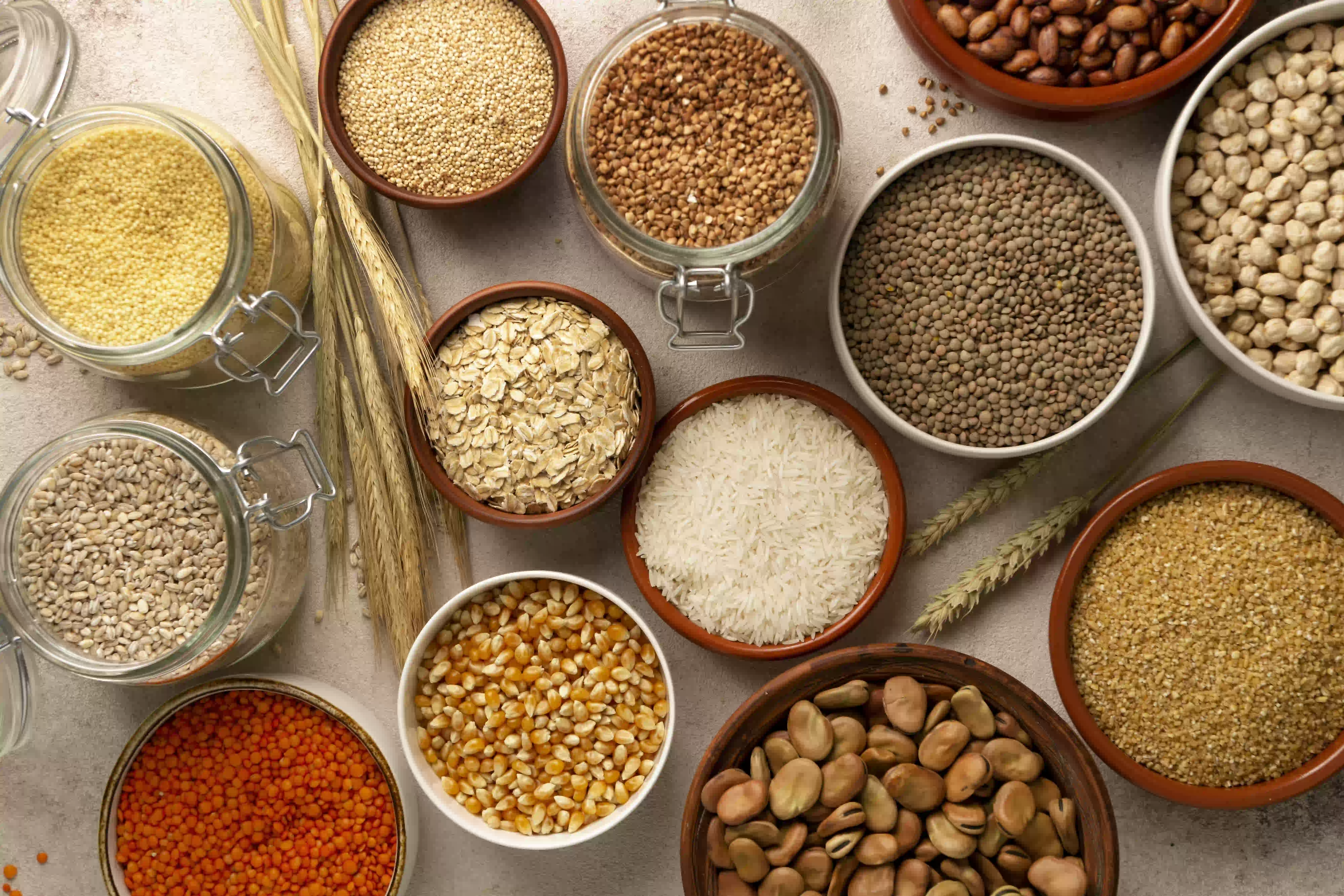In recent years, multigrain products have become increasingly popular as a healthy food choice. These products are made from a combination of two or more types of grains, each with its own unique nutritional profile. When combined, these grains offer more complete nutritional benefits than when consumed individually. In addition to being rich in vitamins, minerals, and fiber, multigrain products also contain natural phytochemicals that support overall health. Not only are they nutritious, but the mix of grains also provides a more interesting texture and richer taste, making multigrain a great addition to a healthy daily lifestyle. Thanks to its balanced nutritional content, multigrain is also ideal for a healthy eating pattern or daily diet program.
Let’s explore what nutrients are typically found in multigrain and the benefits you can get from consuming it regularly.
What Nutrients Are Found in Multigrain?
Multigrain is known as a complete and nutritious food source. The combination of various grains provides diverse nutrients, making it an excellent choice to support a healthy lifestyle. Below are the main nutrients commonly found in multigrain products:
- Dietary Fiber
Helps maintain a healthy digestive system and stabilizes blood sugar levels. - Complex Carbohydrates
Serves as a primary energy source that is released gradually, keeping the body energized for longer. - Protein
Plays a crucial role in repairing and building body tissues while providing a longer-lasting feeling of fullness. - Healthy Fats (especially Omega-3)
Supports brain and heart health, and helps absorb fat-soluble vitamins. - Vitamin B Complex
Aids in energy metabolism and supports the proper functioning of the nervous system. - Iron
Needed for the formation of red blood cells and the transportation of oxygen throughout the body. - Magnesium
Contributes to bone strength, muscle and nerve function, and helps regulate blood pressure. - Antioxidants
Protect body cells from damage caused by free radicals and support overall immune health.
How Multigrain Can Support a Healthy Diet
Multigrain supports a healthy diet through its wide range of complementary nutrients. The dietary fiber—especially from oats, barley, and whole wheat—slows digestion and prolongs satiety, helping to control portion sizes and reduce unnecessary snacking.
Additionally, the complex carbohydrates in multigrain are digested slowly, keeping blood sugar levels stable and preventing insulin spikes that can trigger fat storage. Plant-based protein from grains like quinoa and corn supports muscle development, which is important for burning calories during a diet.
Healthy fats—such as unsaturated fatty acids from flaxseed or chia—help regulate hormones and improve satiety. Meanwhile, micronutrients like magnesium, vitamin B complex, and iron help keep metabolism functioning optimally during weight loss efforts.
This powerful combination makes multigrain not only filling but also supportive of the body’s balance throughout your diet journey.
How Multigrain Supports Heart Health
Multigrain plays an important role in supporting heart health, thanks to its naturally synergistic nutrients. Soluble fiber from whole wheat and oats helps reduce levels of LDL (bad cholesterol) in the blood, which is a major risk factor for heart disease.
Multigrain is also rich in magnesium and potassium—two essential minerals that help keep blood pressure stable. Magnesium supports blood vessel relaxation, while potassium helps balance excess sodium in the body, keeping blood pressure within a healthy range.
Natural antioxidants like polyphenols also help protect blood vessels from damage caused by free radicals, supporting long-term cardiovascular function. This combination makes multigrain a vital part of a heart-healthy and blood pressure-friendly diet.
Maintain a Healthy Diet and Protect Your Heart with Multigrain
High blood pressure often shows no symptoms, but its long-term impact on heart health can be serious if not properly managed. One natural way to help stabilize blood pressure is by improving your eating habits—and this is where multigrain comes in. The potassium content in multigrain helps neutralize excess sodium, while magnesium helps keep blood vessels flexible. Combined with soluble fiber that lowers cholesterol, multigrain becomes a key part of any diet designed to maintain healthy blood pressure.
Beyond its benefits for blood pressure, multigrain is also ideal for supporting a balanced diet. Its fiber helps reduce hunger, complex carbs provide steady energy, and protein supports muscle mass. With its balanced composition, multigrain allows you to maintain your diet without feeling weak or nutritionally deprived.
Choosing the right food sources can be a meaningful first step. Multigrain, with its complete nutrition from whole grains, helps your body function more efficiently every day. To make your healthy routine easier, you can start with something simple—like consuming multigrain-based products that are thoughtfully curated, such as Healthygrain. Its blend of fiber, minerals, and essential nutrients is designed to support your body naturally, including maintaining healthy blood pressure and optimal heart function over time.
References:
- Dighe, P., Rasane, P., Gavahne, A., Kour, A., & Nakra, A. (2022). Importance of multigrain consumption over single grain: A review. The Pharma Innovation Journal, SP-11(6), 2707–2714.
- Harvard T.H. Chan School of Public Health. The Nutrition Source. https://www.hsph.harvard.edu/nutritionsource/
- National Institutes of Health, Office of Dietary Supplements. Fact Sheets for Health Professionals. https://ods.od.nih.gov/
- U.S. Department of Agriculture, Agricultural Research Service. FoodData Central. https://fdc.nal.usda.gov/
- McRae, M. P. (2017). Health Benefits of Dietary Whole Grains. Journal of Chiropractic Medicine. https://doi.org/10.1016/j.jcm.2016.08.006
- World Health Organization (2021). Hypertension. https://www.who.int/news-room/fact-sheets/detail/hypertension

